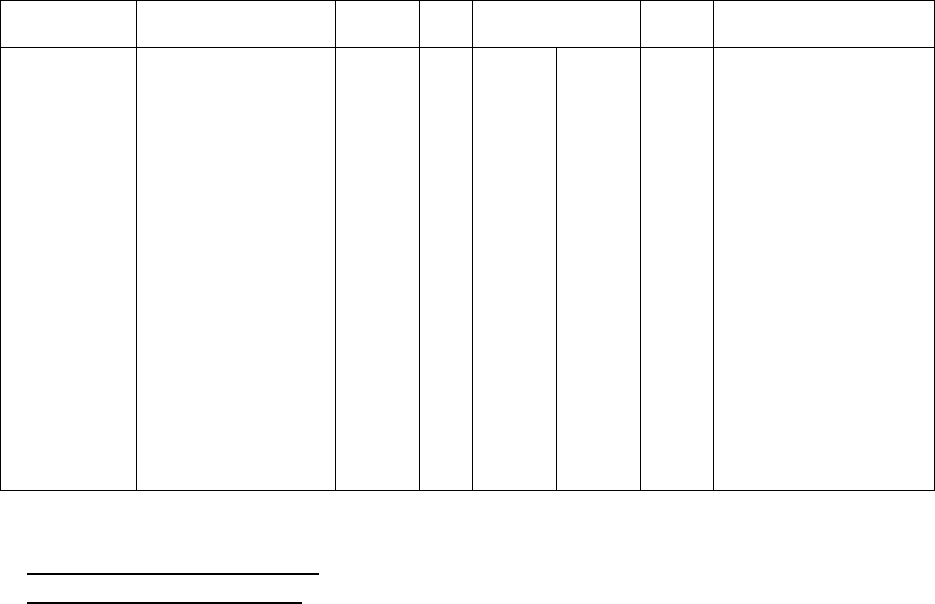
17
2. Start and end of self diagnostic print
Set the power on while pressing the FEED switch and release the FEED switch after the printer
mechanism activates to start self-printing.
The self diagnostic print automatically ends when a preset number of characters are finished
printing. While printing, the printer is in Off-line mode.
4.1.4 No paper sensor
No paper sensor is mounted on the paper path in the printer mechanism.
It detects no paper status of the roll paper. When detecting no paper status, the printer sends
PE signal to the host and stop printing. Pay special attention to the end of roll paper. The end
should not be glued to the core of the roll. If no paper status is detected, replace the roll paper.
4.2 Processing error
1) Error detection details
Name Status BUSY PE
/ERROR 232C
status
PL
status
Removal
Comm. error
Paper near
end
Head up
Paper end
Head temp
high
Cutter error
232C Comm. error
Parity
Overrun
Flaming
Data “?” print
Paper remain sense
CN7 sensor
Head up
No paper
Over 80
°C
Cutter jam
-
L
L
L
L
-
H
L
H
L
-
H
L
L
L
-
Obit 1
1bit 1
2bit 1
3bit 1
-
-
On
On
Flash
Align comm.
condition
Load paper
Head up lever
down
Load paper
Return normal
with 60
°C
Remove jam and
POWER OFF , /INIT
When the above errors are detected except transmission error and paper low end error, printer
stops all operations and outputs error signal.
In the case of parallel interface:
Error signal becomes “LOW”
In the case of serial interface:
Error signal becomes “LOW” and error bit in the status information is set to “ON”.
2) Return to normal status from error statuses
Remove causes of error statuses and turn the power on again or input the /INIT signal to
return to normal. When this process is activated, at the time of power switch turned off, the
printer will be initialized, so that settings are required again.
If data remains in the buffer, attention should be paid
4.3 Buffer full print
If there remains data in the buffer after one line of data is received, printer automatically prints
preceding data. The volume of buffer full data varies depending on ASCII characters or bit
images.


















